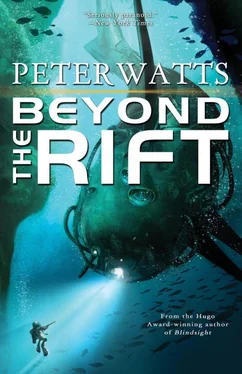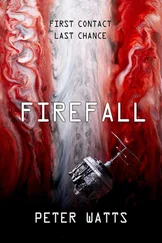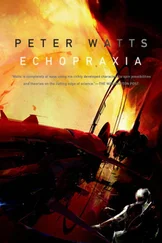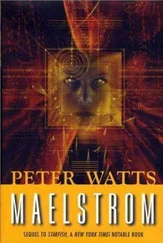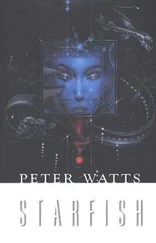MacReady was always the one in charge. The very concept still seems absurd: in charge . How can this world not see the folly of hierarchies? One bullet in a vital spot and the Norwegian dies , forever. One blow to the head and Blair is unconscious. Centralization is vulnerability—and yet the world is not content to build its biomass on such a fragile template, it forces the same model onto its metasystems as well. MacReady talks; the others obey. It is a system with a built-in kill spot.
And yet somehow, MacReady stayed in charge . Even after the world discovered the evidence I’d planted; even after it decided that MacReady was one of those things , locked him out to die in the storm, attacked him with fire and axes when he fought his way back inside. Somehow MacReady always had the gun, always had the flamethrower, always had the dynamite and the willingness to take out the whole damn camp if need be. Clarke was the last to try and stop him; MacReady shot him through the tumor.
Kill spot.
But when Norris split into pieces, each scuttling instinctively for its own life, MacReady was the one to put them back together.
I was so sure of myself when he talked about his test. He tied up all the biomass—tied me up, more times than he knew—and I almost felt a kind of pity as he spoke. He forced Windows to cut us all, to take a little blood from each. He heated the tip of a metal wire until it glowed and he spoke of pieces small enough to give themselves away, pieces that embodied instinct but no intelligence, no self-control. MacReady had watched Norris in dissolution, and he had decided: men’s blood would not react to the application of heat. Mine would break ranks when provoked.
Of course he thought that. These offshoots had forgotten that they could change.
I wondered how the world would react when every piece of biomass in the room was revealed as a shapeshifter, when MacReady’s small experiment ripped the façade from the greater one and forced these twisted fragments to confront the truth. Would the world awaken from its long amnesia, finally remember that it lived and breathed and changed like everything else? Or was it too far gone—would MacReady simply burn each protesting offshoot in turn as its blood turned traitor?
I couldn’t believe it when MacReady plunged the hot wire into Windows’s blood and nothing happened . Some kind of trick, I thought. And then MacReady’s blood passed the test, and Clarke’s.
Copper’s didn’t. The needle went in and Copper’s blood shivered just a little in its dish. I barely saw it myself; the men didn’t react at all. If they even noticed, they must have attributed it to the trembling of MacReady’s own hand. They thought the test was a crock of shit anyway. Being Childs, I even said as much.
Because it was too astonishing, too terrifying, to admit that it wasn’t.
Being Childs, I knew there was hope. Blood is not soul: I may control the motor systems but assimilation takes time. If Copper’s blood was raw enough to pass muster than it would be hours before I had anything to fear from this test; I’d been Childs for even less time.
But I was also Palmer, I’d been Palmer for days. Every last cell of that biomass had been assimilated; there was nothing of the original left.
When Palmer’s blood screamed and leapt away from MacReady’s needle, there was nothing I could do but blend in.
I have been wrong about everything.
Starvation. Experiment. Illness. All my speculation, all the theories I invoked to explain this place—top-down constraint, all of it. Underneath, I always knew the ability to change—to assimilate —had to remain the universal constant. No world evolves if its cells don’t evolve; no cell evolves if it can’t change. It’s the nature of life everywhere.
Everywhere but here.
This world did not forget how to change. It was not manipulated into rejecting change. These were not the stunted offshoots of any greater self, twisted to the needs of some experiment; they were not conserving energy, waiting out some temporary shortage.
This is the option my shriveled soul could not encompass until now: out of all the worlds of my experience, this is the only one whose biomass can’t change. It never could .
It’s the only way MacReady’s test makes any sense.
I say goodbye to Blair, to Copper, to myself. I reset my morphology to its local defaults. I am Childs, come back from the storm to finally make the pieces fit. Something moves up ahead: a dark blot shuffling against the flames, some weary animal looking for a place to bed down. It looks up as I approach.
MacReady.
We eye each other, and keep our distance. Colonies of cells shift uneasily inside me. I can feel my tissues redefining themselves.
“You the only one that made it?”
“Not the only one…”
I have the flamethrower. I have the upper hand. MacReady doesn’t seem to care.
But he does care. He must . Because here, tissues and organs are not temporary battlefield alliances; they are permanent , predestined. Macrostructures do not emerge when the benefits of cooperation exceed its costs, or dissolve when that balance shifts the other way; here, each cell has but one immutable function. There’s no plasticity, no way to adapt; every structure is frozen in place. This is not a single great world, but many small ones. Not parts of a greater thing; these are things . They are plural .
And that means—I think—that they stop . They just, just wear out over time.
“Where were you, Childs?”
I remember words in dead searchlights: “Thought I saw Blair. Went out after him. Got lost in the storm.”
I’ve worn these bodies, felt them from the inside. Copper’s sore joints. Blair’s curved spine. Norris and his bad heart. They are not built to last. No somatic evolution to shape them, no communion to restore the biomass and stave off entropy. They should not even exist; existing, they should not survive.
They try, though. How they try. Every thing here is walking dead and yet it all fights so hard to keep going just a little longer. Each skin fights as desperately as I might, if one was all I could ever have.
MacReady tries.
“If you’re worried about me—” I begin.
MacReady shakes his head, manages a weary smile. “If we’ve got any surprises for each other, I don’t think we’re in much shape to do anything about it…”
But we are. I am.
A whole planet of worlds, and not one of them—not one —has a soul. They wander through their lives separate and alone, unable even to communicate except through grunts and tokens: as if the essence of a sunset or a supernova could ever be contained in some string of phonemes, a few linear scratches of black on white. They’ve never known communion, can aspire to nothing but dissolution. The paradox of their biology is astonishing, yes; but the scale of their loneliness, the futility of these lives, overwhelms me.
I was so blind, so quick to blame. But the violence I’ve suffered at the hands of these things reflects no great evil. They’re simply so used to pain, so blinded by disability, that they literally can’t conceive of any other existence. When every nerve is whipped raw, you lash out at even the lightest touch.
“What should we do?” I wonder. I cannot escape into the future, not now. How could I leave them like this?
“Why don’t we just—wait here awhile,” MacReady suggests. “See what happens.”
I can do so much more than that.
It won’t be easy. They won’t understand. Tortured, incomplete, they’re not able to understand. Offered the greater whole, they see the loss of the lesser. Offered communion, they see only extinction. I must be careful. I must use this newfound ability to hide. Other things will come here eventually, and it doesn’t matter whether they find the living or the dead; what matters is that they find something like themselves, to take back home. So I will keep up appearances. I will work behind the scenes. I will save them from the inside , or their unimaginable loneliness will never end.
Читать дальше
